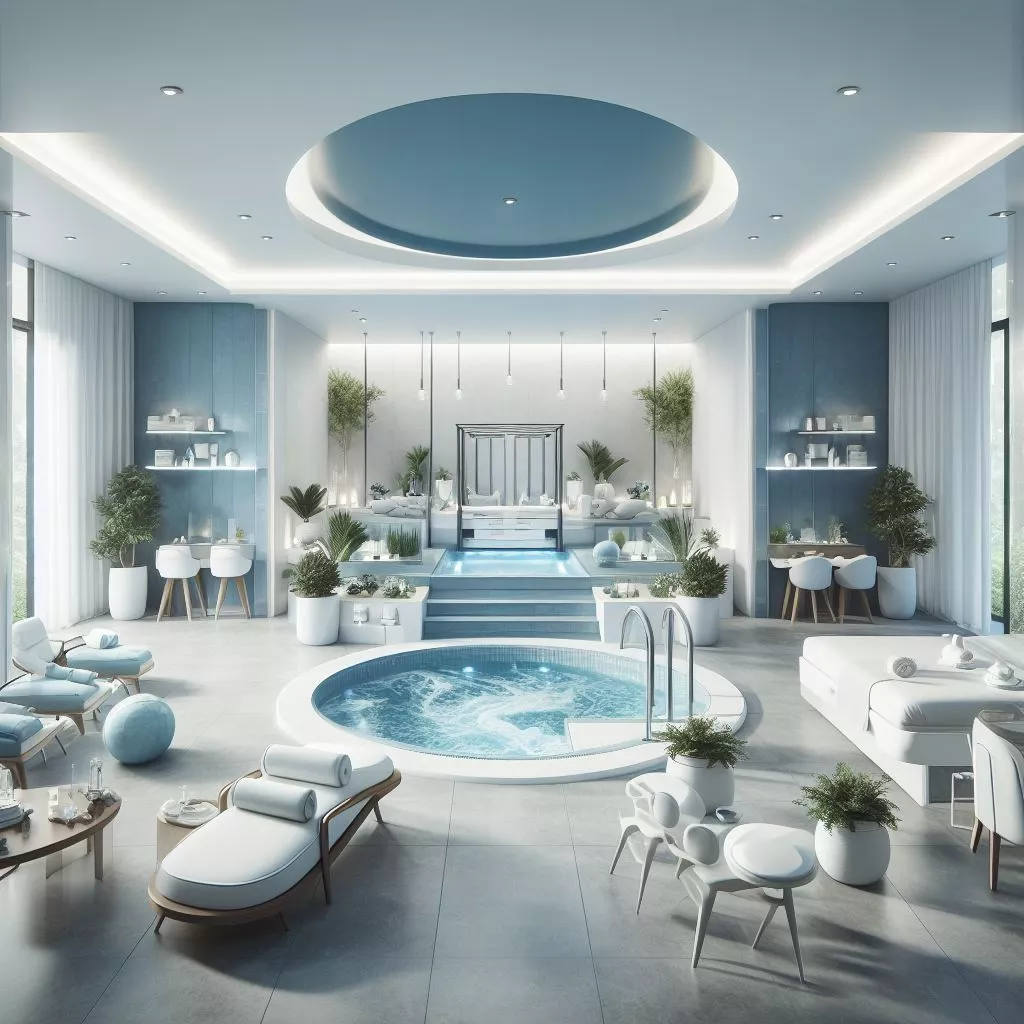Maintaining a high standard of spa water treatment is crucial. Without good water quality that has been effectively treated and maintained, a range of issues can arise, such as algae, bacteria, and discomfort for spa users. This paper primarily discusses spa algaecides and their impact on treated water. We will elaborate on the concept and function of spa products and explain their importance in spa treatment. Additionally, by comparing them to several other water treatment processes, readers will gain a clear understanding of the advantages and disadvantages of various methods. Through this article, readers can learn how to best meet their spa needs.

What are spa algaecides and their role in maintaining water quality?
Spa algaecides are specially designed to prevent and control algae in spa environments. Algae are microorganisms that grow rapidly in warm and humid conditions, and if left unchecked, they can reproduce extensively, causing water quality issues.
The primary function of spa algaecides is to disrupt the survival and reproduction of algae, thereby inhibiting their growth. These chemicals generally contain chlorides or other organic compounds that can disrupt the cell structure of algae, preventing them from growing. Additionally, some spa algaecides can alter the chemical environment of the water, making it difficult for algae to survive.
Utilizing “spa algaecides” ensures the cleanliness and algae-free quality of spa water, providing you with a safe, hygienic, and enjoyable spa experience.
Types of spa algaecides available in the market:
- High Chlorine Algaecides: These contain high concentrations of chlorine, capable of rapidly killing algae and preventing their reproduction.
- High Oxygen Algaecides: These algaecides have high oxygen content, which oxidizes the cells of algae, inhibiting their growth.
- Copper-Based Algaecides: These algaecides contain copper ions that neutralize the algae’s growth environment, suppressing their growth.
- Multipurpose Algaecides: These combine various components to inhibit both algae growth and water quality issues.
Each type of spa algaecide has its unique characteristics and applications, with the selection depending on the specific requirements and water quality conditions of the spa pool. The appropriate choice of spa algaecide ensures that the water quality in the spa environment remains in the best possible condition, providing spa guests with a clean and healthy retreat.
Other water treatment methods
Chlorine-Based Treatment:
- Pros: Effective disinfection, rapid microbial kill, relatively low cost.
- Cons: Chlorine odor may cause discomfort, can irritate sensitive skin.
Bromine-Based Treatment:
- Pros: Effective microbial kill without irritating odors, suitable for sensitive skin.
- Cons: Relatively expensive, requires regular monitoring and maintenance.
Ozone and UV-C Systems:
- Pros: Efficiently kill bacteria and viruses, no need for chemical disinfectants, no odor.
- Cons: Require expensive equipment, high operational and maintenance costs.
Ion Generators and Mineral Purifiers:
- Pros: Reduce chemical disinfectant usage, relatively simple maintenance, can improve water quality.
- Cons: Higher initial investment, not suitable for all water quality issues, require regular monitoring and mineral replenishment.
Each of these water treatment methods has its advantages and limitations, and the specific choice depends on the spa’s needs, budget, and maintenance capacity. By researching various methods and understanding their applicability, spa centers can make the best choice to ensure the hygiene and safety of their spa.
In conclusion, we have delved into the importance of spa water treatment, with a particular focus on spa algaecides and alternative water treatment methods. Different spa centers may have varying needs and preferences, necessitating personalized decisions based on their specific circumstances. It is essential, regardless of the chosen water treatment method, to ensure that it provides a clean, hygienic, safe, and enjoyable spa experience, meeting the expectations and needs of spa guests. We recommend spa centers consult with professional water quality management experts before making decisions, to receive further advice and guidance for maintaining the quality of the spa experience.

 Instant
Quote
Instant
Quote Email
Us
Email
Us